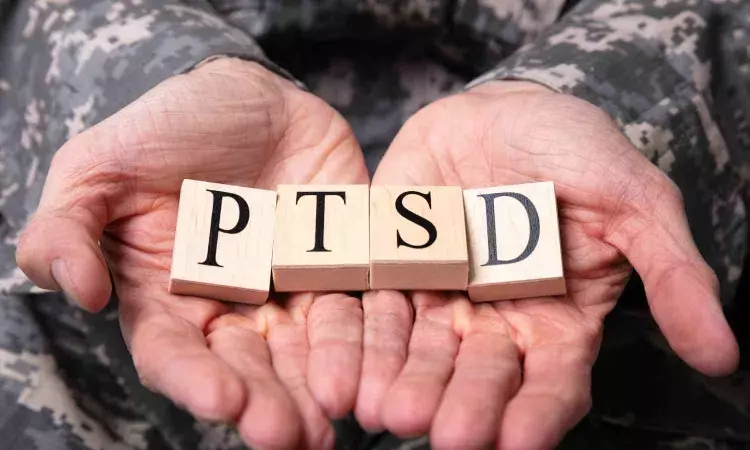- Home
- Medical news & Guidelines
- Anesthesiology
- Cardiology and CTVS
- Critical Care
- Dentistry
- Dermatology
- Diabetes and Endocrinology
- ENT
- Gastroenterology
- Medicine
- Nephrology
- Neurology
- Obstretics-Gynaecology
- Oncology
- Ophthalmology
- Orthopaedics
- Pediatrics-Neonatology
- Psychiatry
- Pulmonology
- Radiology
- Surgery
- Urology
- Laboratory Medicine
- Diet
- Nursing
- Paramedical
- Physiotherapy
- Health news
- Fact Check
- Bone Health Fact Check
- Brain Health Fact Check
- Cancer Related Fact Check
- Child Care Fact Check
- Dental and oral health fact check
- Diabetes and metabolic health fact check
- Diet and Nutrition Fact Check
- Eye and ENT Care Fact Check
- Fitness fact check
- Gut health fact check
- Heart health fact check
- Kidney health fact check
- Medical education fact check
- Men's health fact check
- Respiratory fact check
- Skin and hair care fact check
- Vaccine and Immunization fact check
- Women's health fact check
- AYUSH
- State News
- Andaman and Nicobar Islands
- Andhra Pradesh
- Arunachal Pradesh
- Assam
- Bihar
- Chandigarh
- Chattisgarh
- Dadra and Nagar Haveli
- Daman and Diu
- Delhi
- Goa
- Gujarat
- Haryana
- Himachal Pradesh
- Jammu & Kashmir
- Jharkhand
- Karnataka
- Kerala
- Ladakh
- Lakshadweep
- Madhya Pradesh
- Maharashtra
- Manipur
- Meghalaya
- Mizoram
- Nagaland
- Odisha
- Puducherry
- Punjab
- Rajasthan
- Sikkim
- Tamil Nadu
- Telangana
- Tripura
- Uttar Pradesh
- Uttrakhand
- West Bengal
- Medical Education
- Industry
Brexpiprazole with sertraline may improve posttraumatic stress disorder symptoms, finds JAMA study

A new study published in the Journal of American Medical Association showed that the majority of individuals tolerated the brexpiprazole + sertraline therapy, which reduced posttraumatic stress disorder (PTSD) symptoms.
4 clusters of symptoms are indicative of posttraumatic stress disorder (PTSD) which are, intrusive reliving of the event, avoidance of internal and external connections with the trauma, unfavorable changes in mood and thought patterns, and increased arousal and reactivity. In the US and across the world, PTSD is quite common (estimates vary between research).
The only medications for PTSD that have been authorized by the US Food and Drug Administration are sertraline and paroxetine, both of which are selective serotonin reuptake inhibitors (SSRIs). Yet, 42% of PTSD patients in a large meta-analysis did not improve with SSRI therapy. Atypical antipsychotics like brexpiprazole have a wide range of pharmacological effects on the dopaminergic, serotonergic, and noradrenergic neurotransmitter systems, which are linked to mental disorders like PTSD. This trial looked at the effectiveness, safety, and tolerability of treating PTSD with a combination of brexpiprazole and sertraline (brexpiprazole + sertraline) against sertraline + placebo.
From October 2019 to August 2023, a double-blind, randomized clinical study using a parallel design was carried out. The investigation was conducted at 86 clinical trial locations in the United States and included a 1-week placebo run-in period followed by an 11-week randomized, parallel-arm period (with a 21-day follow-up). Adult PTSD outpatients (volunteer sample) were recruited. From randomization (week 1) to week 10, the main outcome was the difference in the Clinician-Administered PTSD Scale for DSM-5 (CAPS-5) total score, which gauges the intensity of 20 PTSD symptoms, between brexpiprazole + sertraline and sertraline + placebo. Adverse incidents were included in safety evaluations.
A total of 1327 people had their eligibility evaluated. 416 individuals were randomly assigned following 878 screen failures. Brexpiprazole + sertraline had a completion rate of 137 out of 214 individuals (64.0%), whereas sertraline + placebo had a completion rate of 113 out of 202 participants (55.9%). In comparison to sertraline + placebo, brexpiprazole + sertraline showed a statistically significant improvement in the CAPS-5 total score at week 10 (LS mean difference: −5.59).
Also, all important secondary and additional effectiveness endpoints were satisfied. For brexpiprazole + sertraline, treatment-emergent adverse effects included nausea, exhaustion, weight gain, and somnolence, with an incidence of 5% or higher. Adverse event-related discontinuation rates were 20 of 196 individuals (10.2%) for sertraline + placebo and 8 of 205 participants (3.9%) for brexpiprazole + sertraline. Overall, this study found the effectiveness of brexpiprazole + sertraline as a novel, effective therapy for PTSD.
Source:
Davis, L. L., Behl, S., Lee, D., Zeng, H., Skubiak, T., Weaver, S., Hefting, N., Larsen, K. G., & Hobart, M. (2024). Brexpiprazole and Sertraline Combination Treatment in Posttraumatic Stress Disorder. In JAMA Psychiatry. American Medical Association (AMA). https://doi.org/10.1001/jamapsychiatry.2024.3996
Neuroscience Masters graduate
Jacinthlyn Sylvia, a Neuroscience Master's graduate from Chennai has worked extensively in deciphering the neurobiology of cognition and motor control in aging. She also has spread-out exposure to Neurosurgery from her Bachelor’s. She is currently involved in active Neuro-Oncology research. She is an upcoming neuroscientist with a fiery passion for writing. Her news cover at Medical Dialogues feature recent discoveries and updates from the healthcare and biomedical research fields. She can be reached at editorial@medicaldialogues.in
Dr Kamal Kant Kohli-MBBS, DTCD- a chest specialist with more than 30 years of practice and a flair for writing clinical articles, Dr Kamal Kant Kohli joined Medical Dialogues as a Chief Editor of Medical News. Besides writing articles, as an editor, he proofreads and verifies all the medical content published on Medical Dialogues including those coming from journals, studies,medical conferences,guidelines etc. Email: drkohli@medicaldialogues.in. Contact no. 011-43720751


